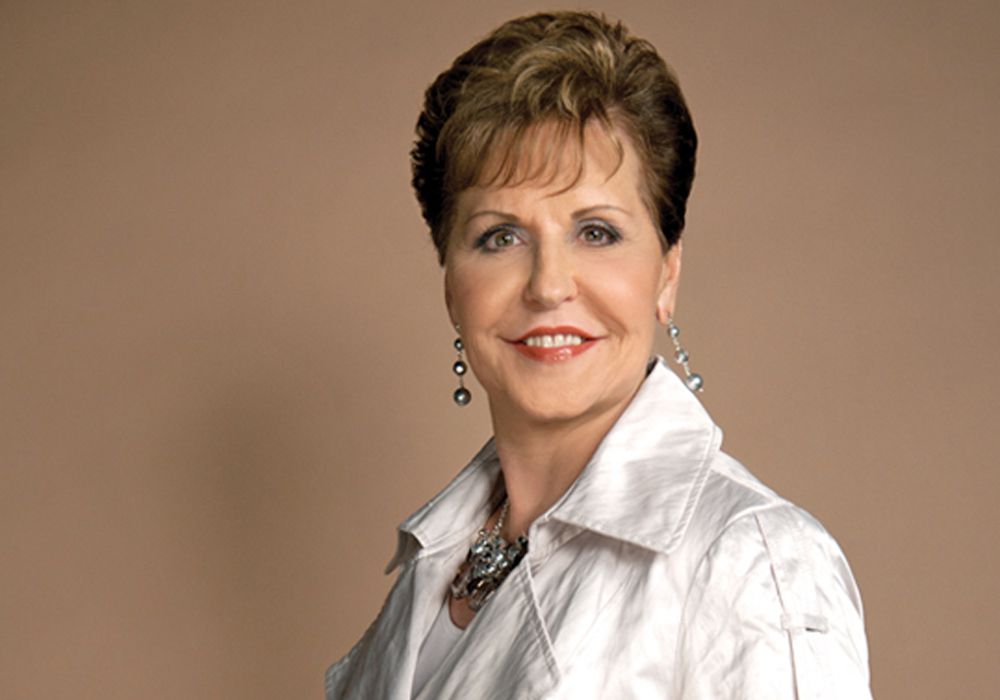

Prosperity gospel promotes the idea that belief, optimism, and giving can result in wealth and well-being. Numerous preachers advocate this perspective, gaining popularity both in the U.S. and internationally. While some individuals derive encouragement from these messages, others express concerns about the potential misinterpretation of spiritual values.
This article outlines the top 10 prosperity preachers who have impacted this movement, providing an overview of their influence and the ways they engage with their audiences.
Understanding Prosperity Gospel
Prosperity theology asserts that faith results in financial gain, health, and blessings. Preachers associated with this movement often highlight positive confession, where affirmations can bring about desires. They view material wealth as an indication of God’s favor and a result of a covenant with Him. This belief system has origins in healing revivals and the new thought movement, connecting financial success with divine intent.
The emergence of televangelism facilitated its widespread appeal, leading to notable growth in communities in the global south. Many churchgoers are attracted to the promise of healing and the possibility of financial abundance. Preachers interpret scripture to indicate that Jesus’ resurrection and forgiveness of sins lead to both spiritual and material inheritance. Detractors contend that this teaching encourages the worship of wealth over spiritual truths and neglects the reality of suffering in a Christian’s life.
This gospel of wealth also draws those seeking personal empowerment during tough economic periods, yet it can be perceived as misleading and neglectful of the nuances of divine will.
Read More: Understanding the Prosperity Gospel: A Comprehensive Guide
Characteristics of Prosperity Preachers
Prosperity preachers often share common traits in style and messaging, emphasizing financial success as a sign of divine favor. They promote the idea of personal empowerment and use phrases like “seed faith” and “blessing pact” to encourage donations, believing that this will lead to rewards and abundance. Their interactions with followers center on the belief that generous giving will yield miraculous returns, creating a connection between giving and receiving.
Incorporating scripture is a prominent strategy for these preachers, as they reinterpret biblical verses to support their views on wealth. They discuss blessings linked to faith and positive affirmation, suggesting that achieving health and relief from illness is part of divine will. Prosperity theology often downplays suffering, advocating that believers can claim the promises of material wealth and health as part of their spiritual inheritance.
They might draw on themes from the New Thought movement and employ televangelism to reach larger audiences, presenting their teachings on the gospel of wealth as consistent with Christian beliefs.
Read also: Understanding Sound Doctrine
Top 10 Prosperity Preachers
1. Joel Osteen


Joel Osteen’s teachings reflect a strong emphasis on prosperity theology, highlighting faith and the expectation of material wealth and financial success as blessings from God. He promotes positive confession, encouraging churchgoers to express affirmations that align with their desires, which is a hallmark of the faith movement. Osteen’s preaching style, characterized by uplifting messages broadcast through television, has gained him considerable popularity among televangelists.
His connectionof prosperity with personal empowerment resonates with many seeking relief from sickness and miracles in their lives. Growing up in a family involved in ministry influences his message that combines forgiveness of sins with promises of health and financial prosperity, making his teachings feel relatable.
By affirming that God desires His followers to experience wealth and blessings, he appeals to a global south audience looking for hope amid struggles, blending elements of new thought movement principles with spiritual understanding. This focus on resurrection and eternal inheritance attracts those interested in the gospel of wealth while addressing the challenges of suffering in everyday life.
2. Creflo Dollar


Creflo Dollar is a well-known prosperity preacher, which promotes the idea that faith can lead to material wealth and health. His beliefs center on concepts like positive confession and viewing financial prosperity as a sign of God’s blessings. Dollar’s ministry has significantly evolved, attracting a diverse audience through televangelism, reaching churchgoers not only in the United States but also in the global south.
His teachings focus on personal empowerment and the belief that believers can claim blessings through giving, often termed a blessing pact. However, he has faced criticism for his lavish lifestyle, which some see as a form of idolatry centered on material wealth. Critics argue that his perspective misinterprets scripture, promotes financial success as a consequence of faith, and overlooks the significance of suffering and God’s will in the Christian life.
Discussions about his teachings raise broader concerns about the money-focused emphasis of the prosperity gospel and its perceived inconsistencies with traditional Christian beliefs.
3. Kenneth Copeland


Kenneth Copeland is a prominent prosperity preacher, emphasizing the belief that faith can lead to financial success and material blessings. He teaches that donations to the ministry act as seeds that will bring forth divine rewards. His messages often promote positive declarations, encouraging followers to vocalize their aspirations for wealth and health.
This theology, shaped by the new thought movement, highlights personal empowerment and faith as ways to overcome adversity andachieve success. Copeland’s teachings have gained a wide audience through televangelism, contributing to significant growth in regions like the global south and shaping perceptions of American Christianity. However, many church leaders challenge his doctrines, arguing that they overly focus on materialism, misinterpret scripture, and risk promoting idolatry.
Detractors contend that this perspective overlooks the role of suffering in the Christian journey and diminishes the significance of the resurrection by implying that financial prosperity reflects divine favor, leading to ongoing disputes regarding his ministry.
Read Also: Top 10 Prosperity Preachers in the US – Mega-Church Pastors & Televangelists
3. Benny Hinn


Benny Hinn’s approach to prosperity theology emphasizes financial prosperity and health as indicators of God’s blessings. He teaches that faith and positive affirmation can lead to miracles, such as the alleviation of sickness and financial success. His belief in a “blessing pact” suggests that generous giving to the church can bring divine returns, aligning with the gospel of wealth.
Hinn’s televised services have significantly impacted the faith movement, reaching churchgoers and increasing awareness of prosperity teachings worldwide, particularly in the global south. Despite his influence, he has faced considerable controversies, especially regarding his financial practices and the lavish lifestyle he leads, often labeled as material wealth and idolatry. Some argue that his interpretations of scripture promote misleading teachings that contradict the core of the Christian life, which should focus on God’s will and overcoming suffering.
The discussions surrounding his ministry highlight the tension between traditional Christian teachings and the appeal of prosperity beliefs.
4. Joyce Meyer


Joyce Meyer is a prominent prosperity preacher, linking faith to financial success and health. She emphasizes that giving can lead to blessings, suggesting that believers can bring about material wealth through positive confession and the principles of faith. Meyer’s teachings reflect the broader emphasis on prosperity found in the gospel of wealth, evidenced by her focus on personal empowerment and overcoming challenges.
While some preachers concentrate on miraculous wealth, Meyer also incorporates themes of healing and alleviating sickness, connecting her to the healing revivals of earlier times. Her method may set her apart by highlighting a personal relationship with God, underlining that understanding God’s will and blessings can lead to financial prosperity and eternal inheritance. Her ministry has had a significant influence on churchgoers, particularly in the global south, offering hope and encouragement for those pursuing financial success.
Critics argue that such teachings may foster an unhealthy attachment to material wealth, especially when they neglect the reality of suffering and the importance of forgiveness of sins in the Christian journey.
5. T.D. Jakes


T.D. Jakes is a prominent prosperity preacher. He emphasizes faith and positive confession, urging churchgoers to have faith in financial prosperity and blessings as indicators of God’s favor. His message often centers around personal empowerment, healing, and overcoming challenges, which deeply resonates with his audience.
As a televangelist, Jakes leverages television to reach a wide array of believers, providing teachings that connect material wealth with the will of God. Over the years, his approach has changed, moving from a narrow emphasis on material blessings to a wider understanding of emotional and spiritual well-being. This sets him apart from other preachers who may follow the conventional “gospel of wealth.
” While he remains aligned with the new thought movement and healing revivals, his interpretation incorporates elements that focus on alleviating suffering along with financial success, making it more adaptable and relevant to a varied audience, including those from the global south.
6. Robert Morris


Robert Morris is a prominent prosperity preacher, which emphasizes financial prosperity as an indication of God’s blessings. Unlike some televangelists, Morris focuses on a positive confession approach, stressing that faith can bring about miracles and alleviate suffering. He teaches followers about the importance of giving, equating donations to a blessing pact that leads to increased blessings.
His ministry, targeting churchgoers, aims to empower individuals through teachings about health, wealth, and the inheritance available to all believers. Morris also ties prosperity closely to the will of God, suggesting that material prosperity is part of the larger gospel of wealth. He highlights the significance of scriptural truths, such as those from the healing revivals that began in earlier decades, reaffirming that God desires to bless His people financially.
By positioning his teachings within a framework of personal empowerment, he attracts significant growth among followers, particularly in the American gospel scene, blending his methods with elements of the new thought movement to appeal to a broader audience.
7. Paula White


Paula White promotes beliefs within prosperity theology that emphasize financial success, healing, and blessings as indicators of God’s favor. She teaches the idea of positive confession, encouraging churchgoers to declare their desires for miracles and financial achievement, aligning with concepts found in the faith movement and gospel of wealth.
Through her television appearances and ministry, she has greatly influenced the prosperity message, engaging large audiences and promoting the practice of generous giving as a way to personal empowerment and healing. White has shaped her followers’ perspective on faith and wealth by linking their spiritual inheritance to material blessings and often interpreting scripture to support the notion that God’s will includes financial achievement. Her teachings also reflect the influence of the new thought movement, promoting the belief that faith can lead to overcoming illness and achieving abundance.
Critics label her views as false teaching, pointing out a potential idolatry of material wealth that contrasts with traditional Christian teachings on suffering and humility.
8. David Olaniyi Oyedepo


David Olaniyi Oyedepo emphasizes teachings of prosperity theology, where financial success and health are seen as blessings tied to one’s faith. His ministry strongly promotes positive confession and the belief that giving activates a blessing pact, leading to material prosperity. Oyedepo’s influence is significant in the global south, especially among churchgoers seeking personal empowerment through faith.
He argues that financial prosperity is part of God’s will for believers, echoing themes common in the faith movement and televangelism. Unlike some preachers who draw criticism for an excessive focus on wealth, Oyedepo presents his teachings as aligned with scripture, focusing on the resurrection and alleviation of sickness as indicators of God’s grace. His writings also address concerns about wealth by emphasizing the eternal inheritance and spiritual blessings over mere material gain.
This emphasis on wealth and miracle healing reinforces the gospel of wealth while contrasting with traditional views that highlight suffering and humility in the Christian life, making Oyedepo’s approach distinct among other televangelists within this religious context.
9. Andrew Wommack


Andrew Wommack teaches that prosperity theology emphasizes financial success and health as signs of God’s favor, connecting these blessings to faith and positive confession. He encourages believers to accept the idea that material wealth arises from God’s will, promoting the belief that giving to the church leads to financial gains. Wommack distinguishes himself among prosperity preachers with his focus on God’s grace and the forgiveness of sins, rather than just the pursuit of blessings.
His teachings question the notion that prosperity is exclusively linked to material wealth, instead highlighting the eternal inheritance believers receive through faith. Through his television broadcasts, he reaches a broad audience, encouraging churchgoers to seek personal empowerment and healing from illness. Wommack’s impact reaches the global south, where his message has resonated with those seeking relief from poverty and hardship.
His approach offers a different perspective to the worship of wealth seen in certain interpretations of prosperity teachings and has prompted discussions within the faith movement regarding responsible scripture interpretation.
Read also: Lust: and its three(3) classifications
Prosperity Preachers : Influence and Theology
Prosperity theology promotes the idea that financial abundance, health, and blessings indicate God’s favor, often tied to principles of faith and positive confession. Many proponents in this movement stress that giving, or seed faith, results in miracles and material gains. This approach resonates strongly with congregants, especially in the global south, who are looking for relief from hardship and illness.
Adherents believe that being generous can lead to divine inheritance and self-empowerment, while those opposed argue that it misrepresents true teachings. Influential figures within this movement may vary in their focus; some prioritize wealth and health, while others adopt a more expansive view of spiritual fulfillment. Televangelists leverage television to connect with broader audiences and propagate the message of wealth, contributing to a notable increase in followers.
Nonetheless, there are worries that these teachings may elevate the importance of material wealth over aligning with God’s intentions, as many scriptures emphasize the significance of suffering and the forgiveness of sins over financial achievements.
The History of Prosperity Gospel
Prosperity theology emerged during the 1940s and 1950s, influenced by healing revivals and the new thought movement. Prominent figures, including televangelists, helped shape the faith movement by linking financial success to blessings from God. These preachers emphasized a gospel of wealth, teaching that material wealth and health signify divine favor, often using positive confession.
Over the years, many churchgoers accepted this message, believing that generosity leads to financial prosperity, while critics labeled it false teaching. The movement saw significant growth in the global south, where people sought alleviation of sickness and a better life through what was presented as God’s will. This focus on prosperity, however, sparked debates within religious communities, leading to discussions about idolatry and the true essence of Christian life.
Prosperity teachings often interpret scripture in ways that focus on personal empowerment and the belief in miracles, but they faced backlash for neglecting the biblical concept of suffering and the teachings of Jesus regarding wealth. The evolving perception of prosperity gospel reflects both hope and controversy within the broader Christian community.
Faith and Prosperity in Modern Theology
Contemporary theologians often highlight that prosperity theology intertwines faith with material wealth, suggesting that blessings signify God’s favor. This belief is common among prosperity gospel preachers, who advocate for concepts like positive confession and financial prosperity as part of the faith movement. They assert that generous giving can lead to miracles.
However, many criticize this as misleading, arguing that scripture reveals a broader understanding of faith that includes accepting suffering. The emphasis on financial success can lead to an unhealthy attachment to material wealth, overshadowing the true message of forgiveness and eternal inheritance. Some theologians point out the shortcomings of the gospel of wealth, noting that it fosters unrealistic expectations regarding health and relief from illness. The emergence of televangelism reflects this trend and has notably impacted churchgoers, particularly in the Global South.
While some find personal empowerment in these teachings, others emphasize that God’s will encompasses much more than just material gain, aligning with traditional scriptural perspectives.
FAQ
What is prosperity gospel, and how does it differ from traditional Christian teachings?
Prosperity gospel teaches that faith can lead to financial success and physical well-being. In contrast, traditional Christianity emphasizes spiritual growth and serving others over material wealth.
For example, traditional teachings may encourage charity and humility, while prosperity gospel advocates for claiming God’s blessings for personal gain.
Who are the top 10 Prosperity Preachers list
- Joel Osteen
- T.D. Jakes
- Creflo Dollar
- Kenneth Copeland
- Joyce Meyer
- Benny Hinn
- Paula White
- Jesse Duplantis
- Robert Kiyosaki
- Ed Young Jr.
Research their teachings and books for insights on prosperity principles.
What are some common themes or teachings among prosperity preachers?
Common themes include faith as a pathway to wealth, positive confession to manifest desires, and generous giving as a way to receive blessings. For example, preachers often encourage tithing or seed planting, suggesting that financial contributions will result in personal prosperity and divine favor.
How has the rise of prosperity preachers affected the global Christian community?
The rise of prosperity gospel preachers has sparked debates on theology, encouraging churches to emphasize wealth and health. This has led to increased fundraising efforts and global outreach but also prompted critiques, urging a return to traditional doctrines like compassion and service, exemplified by movements like the Global Faith Leaders Conference.
What criticisms do prosperity preachers face from other Christian denominations?
Prosperity preachers face criticism for promoting materialism, distorting biblical teachings, and exploiting vulnerable congregants. For example, mainline denominations often emphasize stewardship and sacrifice over wealth, urging believers to focus on spiritual growth rather than financial gain.
Reference
wikipedia Robert Morris (pastor)
Understanding the Prosperity Gospel: A Comprehensive Guide